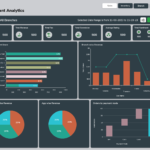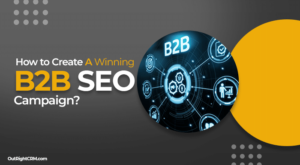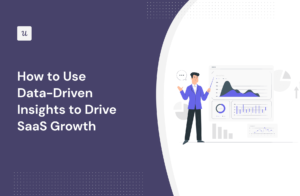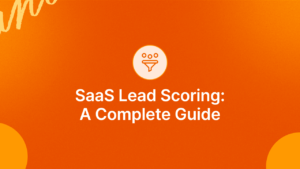CRM software stands for Customer Relationship Management software. It helps businesses manage interactions with customers.
In today’s fast-paced world, keeping track of customer interactions is crucial. CRM software simplifies this by organizing data and streamlining communication. It acts as a central hub for all customer-related information. Businesses use it to improve relationships and boost sales.
But how does it work? CRM software collects data from various channels, like emails and social media. It then analyzes this data to provide insights. This helps businesses understand customer needs better. With CRM software, managing customer relationships becomes easier and more efficient. Ready to explore how CRM can benefit your business? Let’s dive deeper into its functions and advantages.
Introduction To Crm Software
Customer Relationship Management (CRM) software helps businesses manage interactions with customers. It plays a crucial role in improving customer satisfaction and boosting sales. In this section, we will explore what CRM software is and how it works.
Definition Of Crm
CRM stands for Customer Relationship Management. It is a strategy for managing a company’s relationships with current and potential customers. CRM software stores customer data and helps businesses track interactions. This data includes contact information, purchase history, and communication records.
Importance Of Crm
CRM software is important for several reasons. First, it helps businesses organize customer information in one place. This makes it easy to access and update. Second, it improves communication with customers by tracking past interactions. Third, it helps businesses understand customer needs and preferences. This enables personalized service and targeted marketing.
In summary, CRM software is a valuable tool for managing customer relationships. It helps businesses stay organized, improve communication, and understand their customers better.
Types Of Crm Software
CRM software, or Customer Relationship Management software, helps businesses manage customer interactions. There are different types of CRM software. Each type serves a unique purpose. Understanding these types can help you choose the right one.
Want to know more about CRM and Customer Support? Check out this article for helpful insights. Saas CRMs for Multilingual Customer Support: Boost Global Engagement
Operational Crm
Operational CRM focuses on streamlining business processes. It helps manage customer interactions. This type of CRM often includes sales automation, marketing automation, and service automation. Sales automation tracks customer interactions. It helps convert leads into customers. Marketing automation manages campaigns and tracks their success. Service automation improves customer service. It handles customer requests and issues efficiently.
Analytical Crm
Analytical CRM helps analyze customer data. It provides insights into customer behavior. This type of CRM uses data mining and pattern recognition. It helps businesses make data-driven decisions. Analytical CRM can identify trends and predict future behaviors. It helps in understanding customer preferences and needs.
Collaborative Crm
Collaborative CRM focuses on improving communication. It helps share information across different departments. This type of CRM ensures that everyone has access to the same customer information. It improves coordination between sales, marketing, and customer service teams. Collaborative CRM helps enhance customer satisfaction. It ensures a seamless customer experience.
Key Features Of Crm Software
CRM software is designed to help businesses manage their interactions with customers. It streamlines processes, improves customer relationships, and drives sales growth. The key features of CRM software enhance various business operations. These features are essential for ensuring the software meets your business needs.
Contact Management
Contact management is a crucial feature in CRM software. It allows businesses to store and manage customer information efficiently. This includes names, addresses, phone numbers, and email addresses. A good CRM system organizes this data in a way that is easy to access and update. This ensures that your team can always find the information they need.
Sales Automation
Sales automation features streamline the sales process. It helps track leads, opportunities, and sales pipelines. The software can automate repetitive tasks like follow-up emails and meeting schedules. This allows sales teams to focus on closing deals. Sales automation improves efficiency and increases revenue.
Marketing Automation
Marketing automation features enable businesses to run targeted marketing campaigns. These features help segment your audience, manage email campaigns, and track their effectiveness. Automation tools can schedule social media posts and track engagement. Marketing automation ensures that your marketing efforts are consistent and effective.
Dive into CRM and Customer Support and uncover valuable details in this article. Why Does Zoho CRM Have List Descending: Top Benefits Explained
Customer Support
Customer support features are essential for maintaining good customer relationships. CRM software can help manage customer inquiries and support tickets. It ensures that all issues are tracked and resolved promptly. This feature often includes a knowledge base and self-service options for customers. Effective customer support leads to higher customer satisfaction.
How Crm Software Works
Understanding how CRM software works is crucial for any business. The software helps to manage customer relationships effectively. It streamlines processes and improves profitability. Let’s dive into the core functions that make CRM software tick.
Data Collection
CRM software collects data from various sources. These sources include emails, social media, and phone calls. The software gathers customer details like names, contact info, and preferences. This data is stored in a centralized database. Businesses can access this database to view customer histories and interactions.
Data Analysis
Once data is collected, CRM software analyzes it. The software identifies trends and patterns in customer behavior. This helps businesses understand their customers better. Data analysis can reveal which products are most popular. It can also show which marketing strategies are effective. The insights gained from this analysis inform business decisions.
Customer Interaction
CRM software enhances customer interaction. It allows businesses to track and manage customer communication. The software can automate emails and reminders. It helps ensure timely follow-ups and responses. CRM software also provides a history of past interactions. This allows businesses to offer personalized service. Improved interaction leads to higher customer satisfaction.
Benefits Of Using Crm Software
CRM software is a vital tool for businesses of all sizes. It helps manage customer data and interactions. This software offers many benefits that can improve your business operations.
Improved Customer Relationships
CRM software helps you understand your customers better. It stores all customer data in one place. This includes contact details, purchase history, and communication logs. You can use this data to personalize your interactions. Happy customers are loyal customers.
Explore the depths of CRM and Customer Support with this informative post. Real-Time Metrics Tracking for E-Commerce CRM Users: Boost Sales Now
Increased Sales
CRM tools streamline your sales process. They provide insights into customer behavior. This helps your sales team target the right customers at the right time. It also helps in identifying potential leads. The result? More sales and higher revenue.
Enhanced Communication
With CRM software, your team can communicate better. It keeps everyone on the same page. Each team member can access up-to-date customer information. This ensures consistent and efficient communication with customers.
Better Data Management
Managing data manually can be a nightmare. CRM software automates this process. It collects, stores, and organizes data efficiently. This makes it easy to access and analyze customer information. Better data management leads to informed business decisions.
Choosing The Right Crm Software
Selecting the best CRM software is vital for your business. It helps improve customer relationships and boosts sales. Making the right choice involves several steps. Let’s explore these steps to find the CRM that fits your needs.
Identify Business Needs
First, identify your business needs. What do you want to achieve with CRM software? Do you need better customer support, improved sales tracking, or detailed analytics? Understanding your goals helps narrow down options.
| Need | Possible CRM Feature |
|---|---|
| Better Customer Support | Ticketing System, Live Chat |
| Improved Sales Tracking | Sales Pipelines, Forecasting |
| Detailed Analytics | Reports, Dashboards |
Evaluate Features
Next, evaluate the features of each CRM. Check if the software offers what you need. Look for key features like:
- Contact Management
- Email Integration
- Task Management
- Mobile Access
Make a list of must-have features. This helps in comparing different CRM options.
Consider Scalability
Think about the future. Can the CRM software grow with your business? Scalability is crucial. Your CRM should handle more customers, data, and users as you expand.
Choose software that supports your growth. This avoids switching CRMs later, saving time and money.
Budget And Cost
Finally, consider your budget. CRM software comes in various price ranges. Some offer monthly subscriptions, while others require annual payments. Compare the costs and see what fits your budget.
Look for hidden fees. Some CRMs charge extra for additional users or features. Ensure the total cost is clear and affordable.
Choosing the right CRM software involves careful planning. By identifying business needs, evaluating features, considering scalability, and checking the budget, you can find the perfect CRM for your business.
Implementing Crm Software
Implementing CRM software is a crucial step for any business. It ensures customer relationships are managed effectively. This process involves several key stages. Each stage helps to maximize the benefits of the CRM system.
Planning And Strategy
Before implementing CRM software, create a clear plan. Identify your business goals and how the CRM will help achieve them. Define the features you need. Consider your budget and timeline. This preparation ensures a smooth implementation process.
Training And Support
Training your team is essential for successful CRM implementation. Provide comprehensive training sessions. Ensure everyone understands the software’s features and benefits. Offer ongoing support to address any issues. This helps your team use the CRM efficiently.
Integration With Existing Systems
Integrating CRM software with your current systems is vital. Ensure the CRM works seamlessly with your existing tools. This includes email, marketing platforms, and other business applications. Proper integration streamlines processes and improves data accuracy.
Credit: www.creatio.com
Challenges And Solutions
CRM software brings many benefits, but it also comes with challenges. These challenges can impact the effectiveness of the system. Let’s look at some common challenges and their solutions.
Data Privacy Concerns
Data privacy is a big worry for many businesses. Protecting customer data is crucial. Unauthorized access or data breaches can harm your business. Here are some solutions:
- Encryption: Encrypt sensitive data to protect it from unauthorized access.
- Access Controls: Limit access to data to only authorized personnel.
- Regular Audits: Conduct regular audits to detect and fix vulnerabilities.
User Adoption
User adoption is another common challenge. Employees may resist using new software. This can reduce the effectiveness of the CRM system. Consider these solutions:
- Training: Provide comprehensive training to all users.
- User-friendly Interface: Choose a CRM with an intuitive interface.
- Support: Offer ongoing support to help users with any issues.
Customization Issues
Customization can be tricky. A CRM system must fit the unique needs of your business. Off-the-shelf solutions may not always work. Here are some tips:
- Flexible CRM: Choose a CRM that allows for easy customization.
- Involve Users: Get input from users during the customization process.
- Test Customizations: Test all customizations thoroughly before full deployment.
Future Trends In Crm Software
The world of CRM software is evolving rapidly. New trends are emerging to make customer relationship management more efficient and effective. These trends are transforming how businesses interact with customers and manage their data.
Ai And Automation
Artificial Intelligence (AI) and automation are becoming integral to CRM software. AI can analyze customer data quickly and provide valuable insights. Automation helps in reducing repetitive tasks and streamlining processes.
Some benefits of AI and automation in CRM include:
- Predictive analytics for customer behavior
- Personalized marketing campaigns
- Automated customer service through chatbots
These technologies help businesses improve efficiency and enhance customer satisfaction.
Mobile Crm
Mobile CRM allows businesses to manage customer relationships on the go. With the rise of smartphones, mobile CRM is becoming essential. Employees can access customer data anytime, anywhere.
Benefits of mobile CRM include:
- Real-time access to customer information
- Improved communication with customers
- Increased productivity for sales teams
Mobile CRM ensures that businesses can stay connected with their customers at all times.
Social Crm
Social CRM integrates social media platforms with CRM software. This helps businesses engage with customers on social media. Social CRM allows for better customer interaction and feedback.
Key features of social CRM:
- Monitoring social media mentions
- Engaging with customers on social platforms
- Tracking customer sentiment and feedback
Social CRM helps businesses build stronger relationships with their customers through social media engagement.
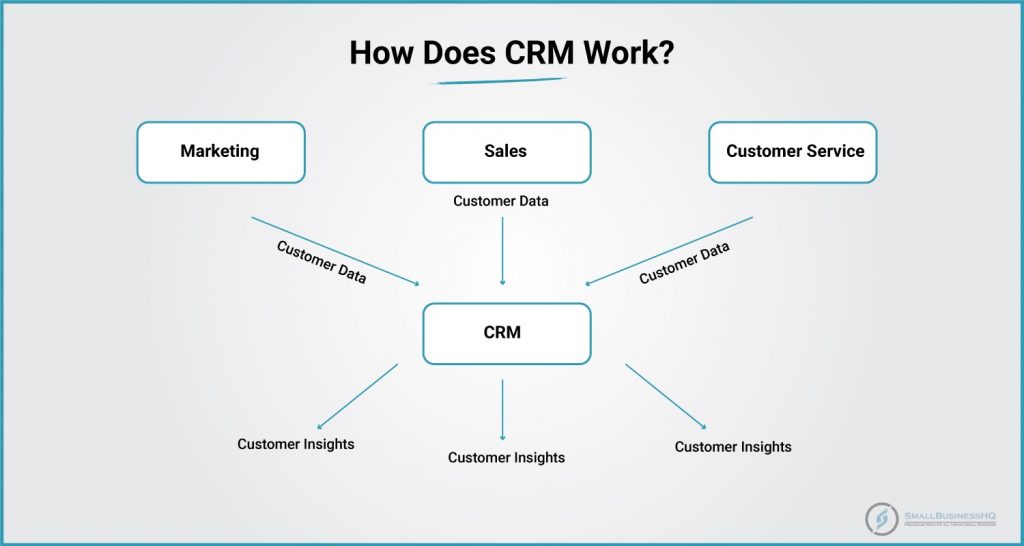
Credit: smallbusinesshq.co

Credit: financesonline.com
Frequently Asked Questions
What Is Crm Software?
CRM software stands for Customer Relationship Management software. It helps businesses manage interactions with customers. It stores customer data, tracks communication, and automates sales processes. This improves customer service and boosts sales.
How Does Crm Software Work?
CRM software collects and organizes customer data. It tracks interactions and automates tasks like follow-ups. This helps businesses understand customer needs. It also improves customer relationships and increases sales efficiency.
Why Is Crm Software Important?
CRM software is important because it centralizes customer information. It improves communication and streamlines sales processes. This leads to better customer service and higher sales. It also helps businesses make data-driven decisions.
Who Uses Crm Software?
CRM software is used by businesses of all sizes. Sales teams, customer service representatives, and marketing departments benefit from it. It helps manage customer relationships and improves efficiency.
Conclusion
CRM software improves business efficiency. It organizes customer data effortlessly. This tool helps manage leads and sales. It also enhances customer relationships. Easy to use and understand, CRM benefits all business sizes. Try CRM software to streamline operations today. Your business will thank you.


